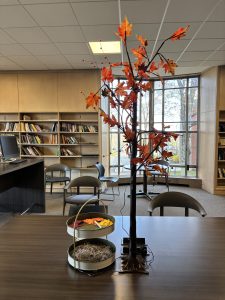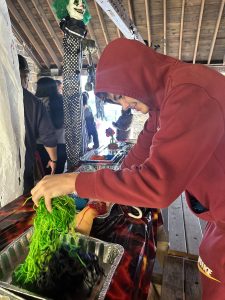Celebrating the Fourth of July can be a fun experience for families, but for those with autistic individuals, it is important to consider activities that minimize sensory overload and sensitivities. Here is a list of suggestions to ensure an enjoyable and comfortable celebration:
- Plan Ahead
Create a Schedule: Outline the day’s activities, providing clear expectations. Use visual schedules or social stories to help autistic individuals understand the sequence of events.
Visit the Location in Advance: If attending a public event, visit the location beforehand to familiarize yourself with the surroundings.
- Opt for Quiet Celebrations
Stay Home: Celebrate in the comfort of your home where sensory inputs can be controlled.
Backyard Picnic: Have a family picnic in the backyard. This allows for a festive atmosphere without overwhelming stimuli.
- Sensory-Friendly Fireworks
Silent Fireworks: Many places offer silent or low-noise fireworks displays designed for individuals with sensory sensitivities.
Watch from a Distance: If attending a fireworks show, watch from a distance where the noise is less intense.
Ear Protection: Use noise-canceling headphones or earplugs to reduce the impact of loud sounds.
- Alternative Visual Displays
Glow Sticks and Sparklers: Use glow sticks, sparklers, or other light-up toys that can be enjoyed in a controlled environment.
Virtual Fireworks: Watch recorded fireworks displays on television or online, where the volume can be adjusted.
- Create a Sensory Safe Space
Designate a Quiet Area: Set up a designated quiet area where the individual can retreat if feeling overwhelmed.
Comfort Items: Ensure the availability of favorite comfort items, such as weighted blankets, fidget toys, or stuffed animals.
- Inclusive Activities
Crafts and Decorations: Engage in Fourth of July-themed crafts, such as making flags or decorating cookies. This can be a calming and creative activity.
Patriotic Music: Play patriotic music at a low volume. Opt for familiar tunes to create a pleasant background atmosphere.
- Community Events
Sensory-Friendly Events: Look for community events specifically designed to be sensory-friendly. These often feature quieter environments and less crowded spaces.
Morning or Afternoon Celebrations: Attend events earlier in the day when crowds are typically smaller and less overwhelming.
- Controlled Outdoor Experiences
Nature Walks: Take a walk in a park or nature reserve where the environment is calm and soothing.
Beach Outings: Visit a less crowded beach, allowing for a relaxing outdoor experience without excessive sensory input.
- Mindful Food Choices
Picnic-Friendly Foods: Prepare a picnic with favorite foods that are easy to eat and not overly stimulating.
Avoid Overeating: Monitor food intake to avoid gastrointestinal discomfort that could increase stress.
- Clear Communication
Explain the Plan: Clearly explain the day’s plan and any changes to routine, providing reassurance and stability.
Check-In Regularly: Regularly check in to assess comfort levels and make adjustments as needed.
By tailoring Fourth of July celebrations to accommodate sensory sensitivities, families can create a memorable and enjoyable experience for everyone. Be sure to prioritize comfort and be prepared to adapt plans to ensure a positive holiday for autistic individuals.





